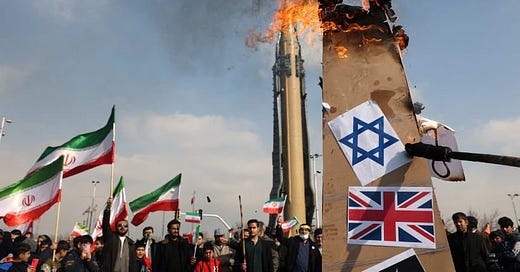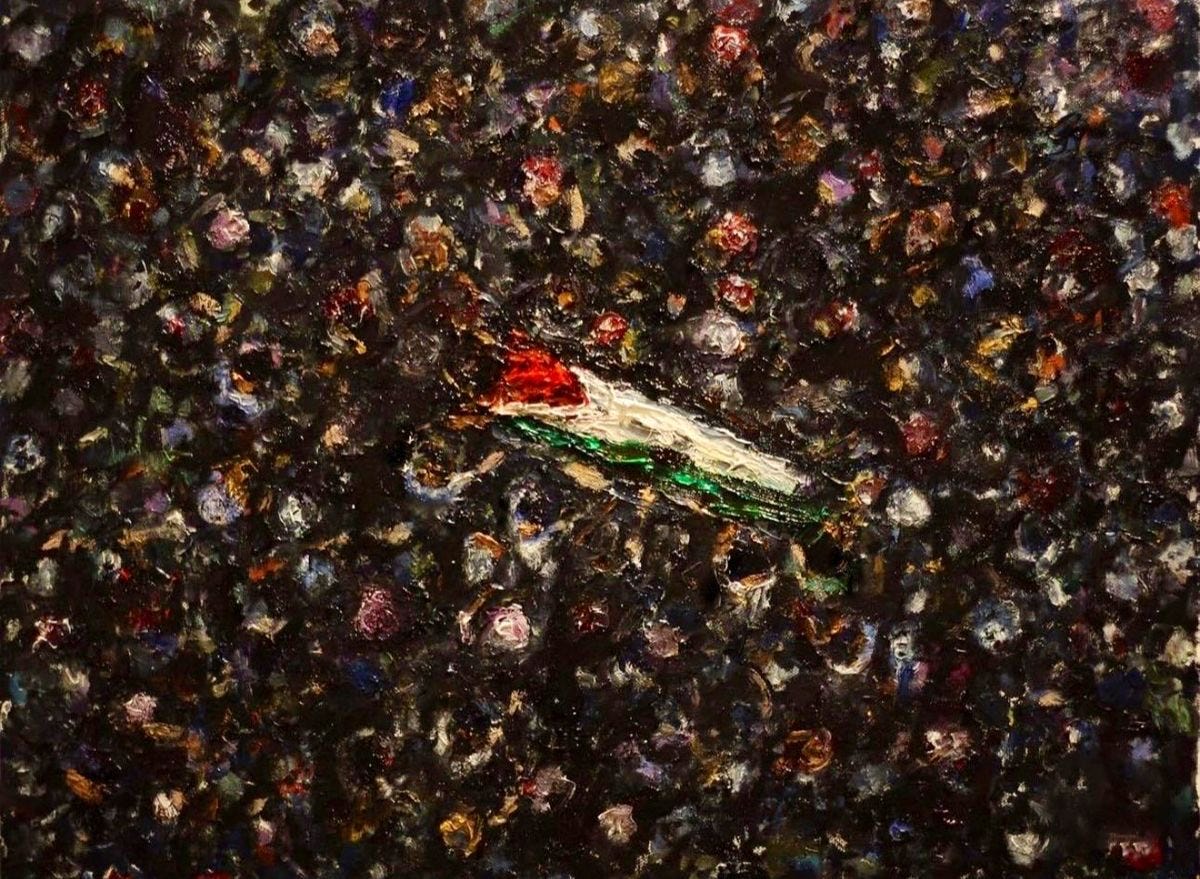Seven Countries, Five Years.
Why the U.S. attack on Iran is a small part of a larger plan to debilitate the Middle East.
After what we’ve seen occurring in the Middle East, the recent news about Iran doesn’t come as a surprise as much as it does as the latest development in a much larger aim. We know by now that central to that aim is the existing and increasingly definitive relationship that exists between Israel and the western powers it continues to collaborate with. The overwhelming evidence in regard to this relationship helps to validate our fears, particularly as we’re left to guess at the outcome of future events on our own.
In my own research fon this weeks post, I came across Nader Hashemi’s piece for The Guardian, discussing where the recent U.S. airstrikes on Iran’s nuclear facilities, like Fordow, Natanz, andEsfahan - were of course closely coordinated with earlier Israeli attacks and mark a sharp escalation aimed at halting Iran’s nuclear ambitions, with this serving as further concrete evidence of Israeli support emerging from countries who in the past have claimed their own ambitions diverge from Israel’s passed a certain point. The strikes followed covert operations by Mossad and were driven by mounting concerns over Iran’s uranium enrichment. Supposedly, concerns surrounding Iran’s potential weaponisation platformed the rationalisation behind the attacks, despite the persistent lack of evidence for the completion of said weapons.
Now, with Iran’s regional proxies weakened and domestic eyes waiting anxiously, the states seized their own opportunity to solidify their place in what so many of us fear is developing into yet another world war. The shift from seemingly restrained diplomacy to overt military force reflects an attempt to assert dominance and dismantle Iran’s capabilities, but where the U.S. have previously concealed their objectives for the public eye, often citing a larger mission to restore safety for its citizens, any explanation for this latest attack won’t satisfy the majority of those currently in protest for Palestine, in addition to those protesting the states’ own heinous treatment of brown immigrants. We must assume officials have considered where the move may backfire, driving Iran to further decentralize its programs and intensify retaliation. If this consideration hasn’t been prioritised, then we’re witnessing a major disregard for American civilians. If it has (which is far more likely), then there is a good chance this has been apart of the plan, and increased justification for further debilitation of Iran. Already, Iran has placed its military on high alert, launched missile strikes on U.S. bases, and threatened to close the Strait of Hormuz, once again contributing to fears of seemingly ongoing devistation in the Middle East.
As disturbing as this instance is in isolation, it’s important to remember where destruction of Middle Eastern powers has been at the forefront of western expansionism for decades now. In 2003, General Wesley Clark, a former NATO commander, claimed a senior military officer told him in November 2001 that the Bush administration planned to attack Iraq first, followed by Syria, Lebanon, Libya, Iran, Somalia, and Sudan.
“7 countries, 5 years”
His allegations appeared in The Clark Critique, with excerpts published in Newsweek. Clark says that after 9/11, many in the Bush administration were eager to strike Iraq, citing state-sponsored terrorism - despite no evidence linking Iraq to the attacks. Common amongst the ever-ongoing attacks to Middle Eastern countries and their people, is the manipulation of information to validate previously laid out plans to acquire territory or resources or both.
When it came to removing Saddam Hussein, Clark argued that removing him was seen as a visible response, but criticised a more misguided “Cold War approach.” According to Clark, the plan targeted the wrong nations, ignored the actual sources of terrorism, and lacked the legitimacy of international law.
Additionally, Clark condemned Bush’s 2002 “Axis of Evil” speech, noting the absence of real connections between Iraq, Iran, and North Korea. While acknowledging Iranian and Syrian support for groups like Hezbollah and Hamas, he emphasizes these groups weren’t targeting Americans, but were largely reactionary forces. Instead, he calls out U.S. allies namely Egypt, Pakistan, and Saudi Arabia as the true sources of terrorism, citing repression, poverty, and extremist funding that is for the most part still ongoing 23 years later.
A recent Democrat convert at the time, Clark noted that the administration used 9/11 to pursue broader Middle East goals under the guise of a “war on terror”. He believed the real strategy should have been to undercut extremist support, rather than debilitating entire regions. It’s no surprise that critics labelled Clark as ‘combative’, given his loud opposition to military operations in the middle east. Nevertheless, his voice continues to echo throughout time, reigning true especially now.
One of the most frustrating aspects of bearing witness to destruction for western citizens is the notion that we continue to vote and wilfully pay for the obliteration of other human populations across the world, but of course this couldn’t be further from the truth.
Much like and related to Tzu’s understanding of war, diplomacy is often positioned as an art form whereby two to seven players at the head of the states they ‘represent’ seek to decorate the canvas with those colours that signify peace or unity. However, because supposedly it is peace in the west that takes precedence even as suffering and debilitation occur elsewhere, we (the observer of this ‘fine’ peace) watch, horrified as so-called strategists paint a picture satisfying sins ; greed, perversion and cruelty.
Asisa







As someone from the middle east who is currently living in Lebanon I can tell you that we are constantly in fear. It is scary. Nearly everyone has anxiety, the sound of a door slamming makes us fear for our lives. Till today, I do no understand what crime we committed to continously experience terror. We still get reports of deaths in the south. The aggression is still ongoing despite a "ceasefire".